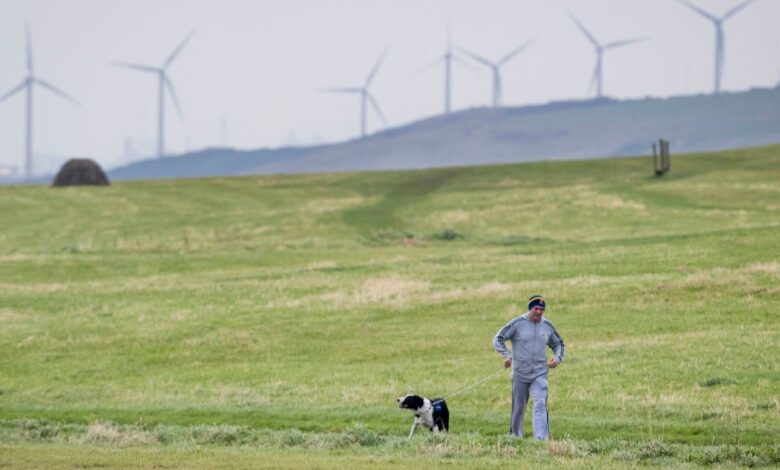Nothing says ‘backwards Brexit Britain’ better than a new coal mine

The Conservatives have given the green light to a new coal mine in an act of climate vandalism which wipes away any trace of environmental responsibility the party has previously tried to portray.
With Michael Gove giving the thumbs up for the Woodhouse Colliery in Cumbria, the charade is over.
It is the latest in an appalling series of environmentally ruthless policy decisions from a party unable to look past the short-term profiteering which polluting fossil fuels can still precipitate.
Banning solar panels from farmland, licensing scores of oil and gas wells in the North Sea – none of it makes sense for the UK’s long term prosperity, experts have said, but the Conservative party wants to do it anyway. It was only after a significant backbench rebellion the party was forced into yet another embarrassing U-turn to remove the ban on onshore wind.
The mine, which would be the first deep coal mine in the UK for 30 years, has little bearing on the UK’s energy policy, as it will only produce coking coal for the steel industry largely outside Europe. In total, 83 per cent of the coal would be exported.
But the fact the government has given it the nod provide us with the latest indication of how Rishi Sunak’s “clean growth” plans he set out at Cop27 are little more than just a shimmering mirage briefly glimpsed in Egypt: There is no sense of environmental responsibility in Whitehall.
The case against the mine is watertight – the Climate Change Committee has described government support for it as “indefensible”. The US government has told Britain coal has “no future”.
The arguments for it remain as brittle as lignite, and seem to keep changing – from the need to support local jobs, to the need to replace Russian coal with local supplies.
While in 2021, Russian coal accounted for 40 per cent of the coking coal used in UK steel production, the war in Ukraine means steel manufacturers have rapidly moved to sourcing coal from elsewhere, including Australia.
Senior British Steel industry figures have already said they will not require coal from the proposed mine, and chief executive of the Materials Processing Institute research centre said only Tata Steel, who are already ending their purchase of Russian coal, would buy it and would not want much.
Academics have also questioned the economic case for the mine, stating ‘there is no evidence that coal extracted from a mine at Whitehaven would reduce the amount of coal extracted overseas’.
Furthermore, as the industry increasingly seeks to rid itself of unpredictable fossil fuel prices and pressure to halt emissions, there are already forecasts that the industry will have turned to using hydrogen in steel manufacture, with the CCC saying coking coal could be “displaced entirely” by hydrogen as early as 2035.
The company behind the proposed mine, West Cumbria Mining, has said it expects 530 jobs to be created, however ‘no firm commitment’ has been made towards this, the ECIU noted this week.
Up to a fifth of the total jobs are likely to be taken up by people who are not local to the mine, the company has said, limiting its local employment benefits.
In contrast, using old coal mines already dug in the North East to generate heat via ground source heat networks is expected to create over 15,000 jobs.
Concern over the mine comes amid mounting outrage at the Conservatives’ refusal to engage with energy policies that could end the years of high bills Britons now face.
Caught in a truth-sapping trap of their own iniquitous making, it is hard to see a government which can’t admit that Brexit may have had one or two economic downsides, move away from its historic love of hydrocarbon-based empire building.
Sunak’s administration are simultaneously failing to stimulate growth and failing to support the transition to a green economy which the IEA said, just this morning, is fundamental to propelling the country out of its economic hole.
We are heading into a bleak winter of record energy bills and soaring inflation which together are threatening Britain with another “lost decade”, but the government is at a policy standstill – lack of energy goes far beyond the National Grid.





